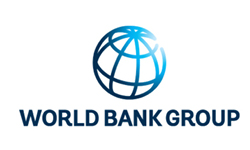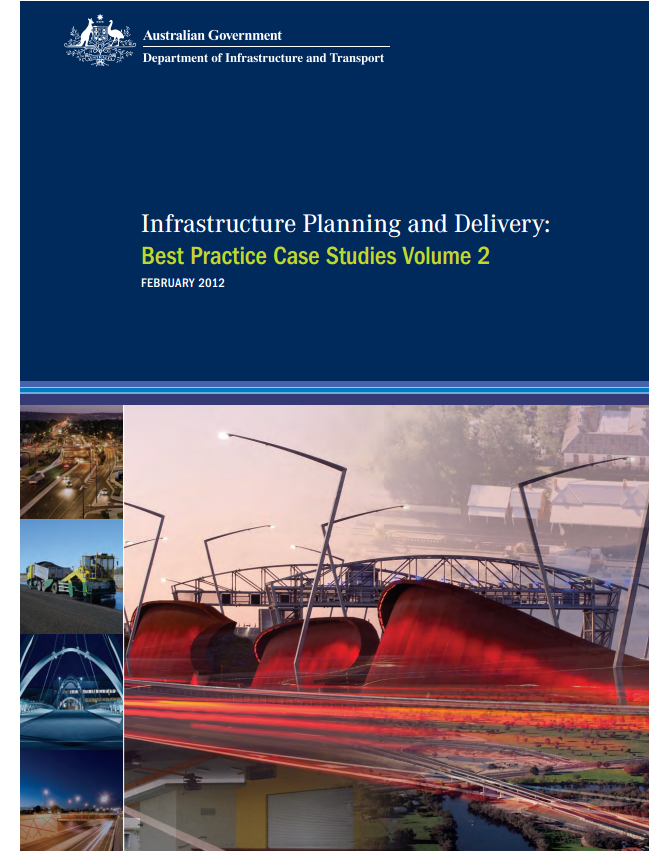694 results found
Featured results



More results
This publication draws on the Private Sector Participation (PSP) experience of four emerging economies Brazil, Peru, the Philippines, and Turkey based on in-depth case studies by Energy Sector Management Assistance Program (ESMAP).

BCG has identified a series of best practices that underlie successful PPPs.


Australian governments have developed national guidelines for the delivery of infrastructure projects to promote cross-government consistency and the use of best practice approaches.



The Framework provides systematic structure for proactively disclosing information pertaining to PPP Projects.



Benefit-cost analysis (BCA) is a valuable and widely used tool. To reduce the odds of misuse, this report probes some important methodological issues, especially as they relate to transport projects.



This booklet aims to provide a platform for sharing the knowledge gained through a review of best practice case studies within Australia s public sector.



A G20 report prepared by the Global Infrastructure Hub reviewing the extent to which Multilateral Development Banks (MDBs) create incentives within their organisations to crowd-in private finance to fund public infrastructure.


Asian Infrastructure Investment Bank President Mr Jin Liqun met Global Infrastructure Hub Chief Executive Officer Chris Heathcote at the GI Hub’s Sydney office on April 3, where both parties provided briefings on their key work. Discussion focused on the GI Hub’s report undertaken for the G20 on the role of Multilateral Development Banks in “crowding-in” private finance for public infrastructure, which was released earlier this year. The GI Hub has already been in discussions with the AIIB on the recommendations in the report.
The Principles of MDBs’ Strategy for Crowding-in Private Sector Finance for Growth and sustainable Development promotes effective approaches to maximize the mobilisation and catalyzation of private sector resources.

Half of all global infrastructure investment will be needed in Asia from now until 2040, major new analysis by the Global Infrastructure Hub shows. And while so much of the region’s infrastructure growth has been in China, the focus will shift to South and South East Asian countries where infrastructure gaps remain very substantial.
Global infrastructure needs and Public-Private Partnerships were discussed when the Foreign Correspondents’ Association of Australia met the GI Hub today.
Global Infrastructure Hub Chief Executive Officer Chris Heathcote says quality public infrastructure can promote greater affluence and spark global growth. Mr Heathcote told a Public-Private Partnership Seminar in Athens that “infrastructure changes lives and changes economies”.
This policy brief outlines promising ideas to attract instiutional investors to pay for infrastructure they have not convinced pension funds or affluent individuals to invest, especially in emerging economies with untested issuers, The “tax-kicker” bond being proposed here could solve this issue.

Mark Moseley, the GI Hub’s Senior Director for Legal Frameworks and Procurement Policies gave a presentation at a seminar on Future Ready: Sustainable Cities – Indonesia Infrastructure in Focus held in Jakarta, Indonesia on 7 March 2017.
Report reviewing the extent to which Multilateral Development Banks (MDBs) create incentives within their organisations to ‘crowd-in’ private finance to fund public infrastructure.
The GI Hub’s Project Pipeline is reaching out across the globe, with registered users from across 90 countries.
Asian Infrastructure Investment Bank Vice President and Chief Administration Officer Dr Luky Eko Wuryanto met with GI Hub Chief Executive Officer Chris Heathcote and senior staff in Sydney today.
Chris Heathcote, Chief Executive Officer, Global Infrastructure Hub The first few weeks of President Donald Trump’s administration have been dominated by early efforts to deliver on some of his most contentious election promises. While the world watches every pronouncement and, indeed, every tweet, there is hope that attention will soon turn to one of his pledges on which there was consensus, a massive and long-overdue infrastructure overhaul across the United States.
GI Hub’s Richard Timbs explains how the new, free Project Pipeline can help the private sector access data about government infrastructure projects across the globe.
This report includes the analysis of global Information and Communication Technologies (ICT) and electronics value chains, an assessment of Ethiopia’s current and potential participation in these regional and global networks, and an analysis of the country’s competitive positions in specific segments of the sector.










 Download Report
Download Report





